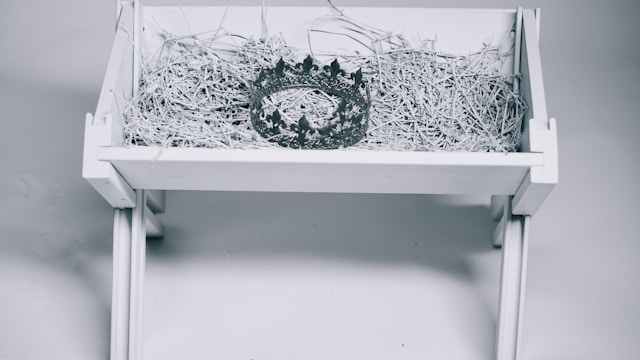First posted to: https://surehopecounseling.com/the-family-wounds-of-our-adopted-children/

Imagine this scenario: You are moving away and will not be coming back. You have less than 10 minutes to pack 10 items or people to take with you. For example, ‘shoes’ do not count as 1 item. A singular ‘pair of shoes’ counts an item. Siblings or parents do not count as 1 person. You have to be specific, my mother, my father, my brother, my cousin, my grandmother, etc… Take some time to decide what you need, but do it quickly there is not much time. Now due to a shortage of truck space, you must reduce what you can take to 5 items or people. Actually, the truck is even smaller than you thought. You must reduce what you bring to only 2.
What remains on your list? What were you able to bring with you? How did you decide what to bring? If this was difficult for you, imagine the difficulty of trying to do this as a child. This is a common scenario that many adopted children go through.
Adopted children experience many of the family of origin wounds that have been described before, parentification, favoritism, authoritarian or permissive parents, and more. With adopted children, there is an added layer of familial loss and grief on top of all of those wounds that the children may not even realize is there. Adopted children experience a family of origin wound before they understand what a family is. We commonly call these types of wounds ambiguous losses and disenfranchised grief.
What is Ambiguous Loss?
Ambiguous loss is defined as the grief or distress associated with a loss in which there is confusion or uncertainty about the person or relationship. For example, with a death comes a finality to a relationship. With adoption, the relationship is in a state of limbo. How do you mourn someone that is still alive but absent? When they know nothing about their birth parents/family, how do they know what to feel about them? Since they do not know what to do with these mixed emotions, it simply sits there as a weight in their minds and hearts. Should I feel sad? Should I be angry? Am I a bad child for not doing more?
What is Disenfranchised Grief?
A type of grief that is not recognized by society. Disenfranchised grief is a hidden grief that experiences push back or isolation from others when someone attempts to mourn them due to the relationship or loss not being recognized as significant, the griever is denied the right to grieve, circumstances around the loss are stigmatized, or the way the person grieves conflicts with social expectations. Why would a child grieve leaving a toxic or unsafe situation with their birth family? Clearly, they are going to a better place! Why give the child a memorial of their previous family/life when it was negative? Little do people that say this know that the pain and loss children experience from situations like this is deeper and impactful than they realize.
Healing From Familial Loss and Grief Wounds
First, we need to identify and give space for what the child has lost. Help the child give voice to that ambiguity of the loss by naming it even though society may not typically see it as loss. Give your child the permission to grieve that loss without guilt. The message they may have received is that there is nothing to be sad or grieve about. They have a new family and they should be grateful! Sadly, this only buries the grief deeper and deeper. Give your child the space and permission that they can be sad and cry for these difficult losses. Healing from a family wound of loss for adopted children, is like healing from a sickness that they do not even realize is there or that they realize is a sickness to begin with.
Next, commemorate these ambiguous losses by creating a ritual or memory just for them. No one gave them the opportunity to remember them, so now give them the chance to recognize them. Lastly, help them move on and heal by helping them understand how all of this loss integrates with who they are today. How has it shaped them? How has it impacted them? How has it influenced their decisions to be where they are today? Healing is when this loss is no longer a wound hiding deep within. It becomes a memory, albeit a painful one, that reminds us of who we are today and how we will live on.
-Daniel Pak – learn more about working with Daniel here!





Leave a Reply